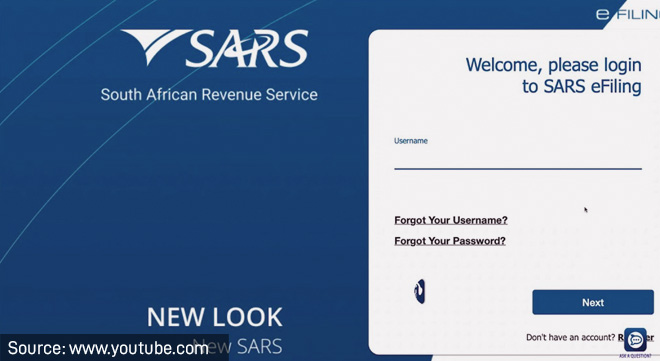National Treasury has published draft amendments to the Income Tax Act and the Tax Administration Act (TAA) designed to align South Africa’s measures to combat money laundering with the standards set by the Financial Action Task Force (FATF).
The draft amendments are contained in the Tax Administration Laws Amendment Bill, which was tabled in Parliament last week when Finance Minister Enoch Godongwana delivered his Medium-term Budget Policy Statement (MTBPS).
The FATF’s Mutual Evaluation Report (MER) in October 2021 identified a range of technical deficiencies in South Africa’s anti-money laundering, countering terrorism financing, and countering the financing of proliferation (AML/CTF/CFP) regime and adopted an action plan for South Africa to address deficiencies.
To give effect to the National Strategy on AML/CTF/CFP, developed as a response to the MER, and give effect to the FATF’s action plan, Parliament adopted the legislative changes in the General Laws (Anti-Money Laundering and Combating Terrorism Financing) Amendment Act.
Disqualification of office-bearers
The GLA Act amended the Companies Act, Non-profit Organisations Act, and Trust Property Control Act by, among other things, requiring certain non-profit organisations (NPOs) to disclosure their beneficial ownership and provide for additional grounds for a person to be appointed or continue to act as a director, office-bearer of a registered NPO, or trustee or to be disqualified from being so appointed or continuing to act in such capacity.
To align with the National Strategy on AML/CTF/CFP and achieve consistency with the GLA Act, Treasury is proposing to amend section 10 of the Income Tax Act to provide for similar grounds for disqualification for tax-exempt associations, including persons to be appointed or continuing to act as an office-bearer of an organisation approved as a tax-exempt entity and for the removal of disqualified office-bearers.
Definition of ‘beneficial owner’
Treasury is also proposing to insert a definition of “beneficial owner” of a company, trust, and partnership in section 1 of the TAA.
In the memorandum accompanying the Tax Administration Laws Amendment Bill, Treasury said the purpose of the insertion is, in keeping with the National Strategy AML/CTF/CFP, to develop an integrated and harmonised beneficial ownership framework, comprising of beneficial ownership registries and other sources, so that law enforcement and other authorities, including the South African Revenue Service (Sars), have access to reliable information about legal and beneficial ownership, in line with the FATF’s beneficial ownership standards and Immediate Outcome 5 of the FATF’s action plan.
Treasury said the definition also seeks to achieve consistency with the GLA Act and to take account of the country’s deficiencies in its AML/CTF/CFP controls and the consequent higher risk of money laundering and terrorism financing being facilitated in South Africa through legal entities such as companies, legal arrangements such as trusts and partnerships, and associations such as NPOs.
Beneficial ownership information is also crucial for tax administration because it helps to ensure transparency and accountability in financial transactions. By identifying the individuals who ultimately benefit from an asset or income, tax authorities can accurately determine tax liabilities and prevent tax evasion, which information may also assist other competent authorities in the investigation of money laundering and other illicit activities.
Furthermore, beneficial ownership information facilitates international co-operation and the exchange of tax-related information among jurisdictions. This co-operation is crucial in detecting and addressing cross-border tax evasion and ensuring that taxpayers fulfil their obligations in the appropriate jurisdictions, Treasury said.
Sharing of taxpayer information
A proposed amendment to sub-section (3) of section 70 of the TAA will include the Companies and Intellectual Property Commission, the Directorate for NPOs, and the Master of the High Court as entities with which Sars can share confidential taxpayer information. Sub-section 70(3) currently permits Sars to share such information with the South African Reserve Bank (Sarb), the Financial Intelligence Centre, and the FSCA.
Treasury said the amendment will enable the entities to share taxpayer information for the purposes of cross-verifying beneficial ownership information.
Progress is being made
In his MTBPS, Godongwana said government departments and agencies – including the National Prosecuting Authority, the Sarb, the FSCA, and Sars – have been working hard to address the deficiencies that resulted in South Africa’s grey-listing in February.
The FATF noted at its plenary meeting in October that such work is showing positive results, with South Africa having addressed 15 of the 20 technical deficiencies in its legal framework and making good progress on 17 of the 22 effectiveness action items, including two that are now deemed to be largely addressed, the minister said.
“However, there is also a significant amount of work that must still be done, particularly with regard to the investigation and prosecution of complex money laundering cases and terror financing, the identification of informal mechanisms for remitting money around the world, and the recovery of the proceeds from crime and corruption.”
The government expects to address all the deficiencies identified by the FATF by early 2025, Godongwana said.



